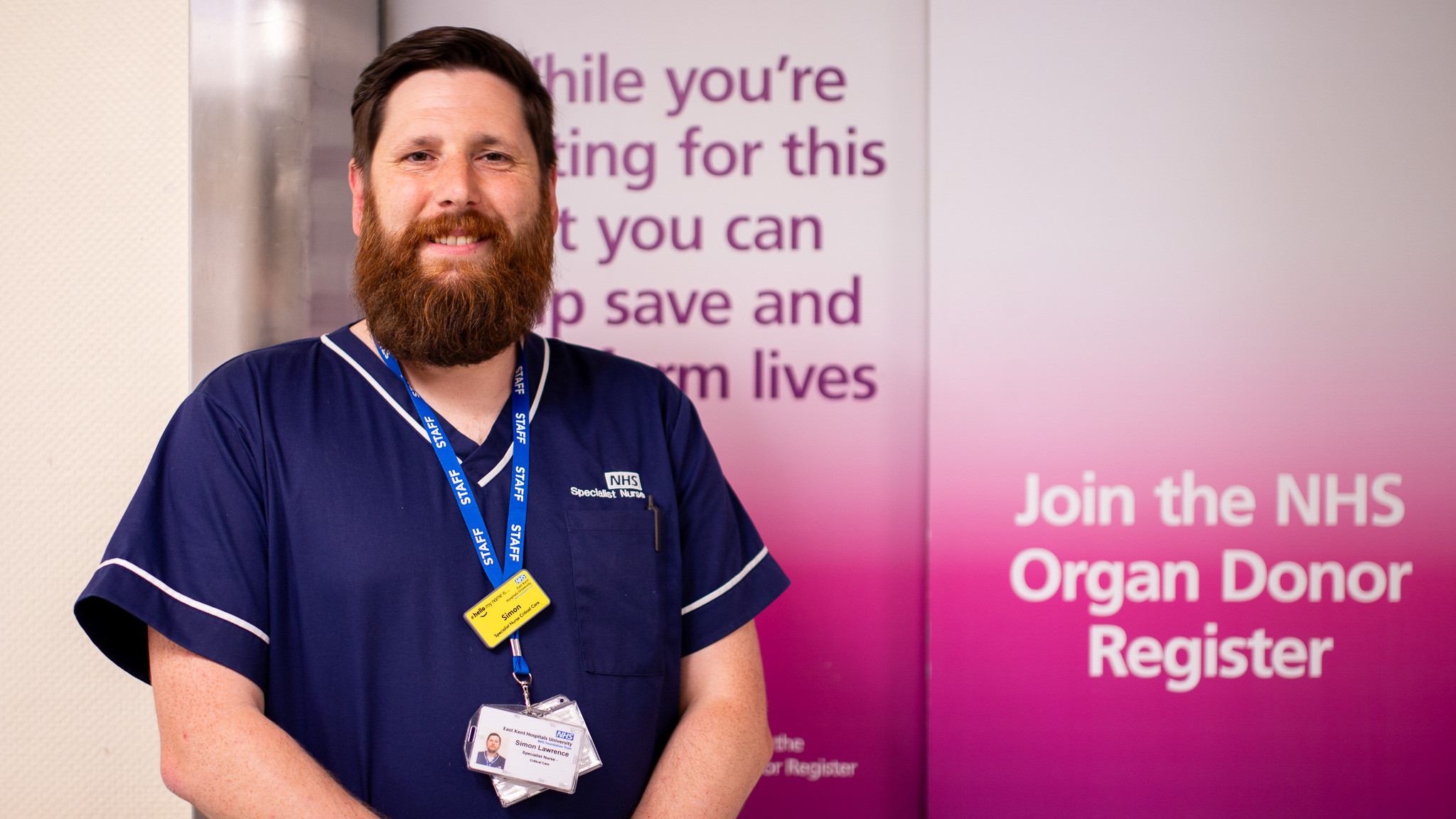
Let’s talk about organ donation
There are around 7,200 people in the UK on the waiting list to receive an organ transplant.
But in order to donate an organ, someone must die in intensive care, meaning only one in 100 people die in the right place for organ donation to be considered.
Simon Lawrence is a specialist nurse for organ donation who has to be ready to facilitate organ donation across the south east of England at the drop of a hat.
Based at the William Harvey Hospital in Ashford, Simon is passionate about the work he does and the lives he helps to save as a result of it.
He said: “Death is inevitable, but if we can offer life as a result then I want to help make that happen, to bring some light into the darkness.”
As part of Simon’s role, he has to talk to people’s loved ones about the possibility of them becoming an organ donor.
He said: “It’s never easy to have these conversations with family and friends during such a difficult time.
“I am very aware and sensitive to the fact that they may have only just begun to grieve and could find it difficult to process the information given.
“This is why it’s so important that we help to make sure all their needs are met and that they are well supported so that they have the clarity of thought to really understand the information we give, and to give us the information we need.
“Everyone views organ donation differently, some find comfort in knowing their loved one’s death can help save another’s life and some see it as a continuation of their loved one’s story. But ultimately, families who support organ donation do not tend to regret the decision they have made.”
Simon and the team provide supportive care for families throughout the donation process, offering a safe space and a listening ear for them to come to terms with what’s happening in whichever way brings them the most comfort.
You are encouraged to make a decision about whether or not you want to be an organ donor at the end of your life. When you have made your decision, make it known on the Organ Donor Register.
The law around organ donation changed in 2020, with the presumption now that unless you have made a decision about organ donation, you would be considered willing to donate your organs. However, your family will always be consulted before organ donation goes ahead.
Simon said: “We’re notoriously bad at talking about death in this country, but having that conversation can help make things easier for your loved ones if the time comes.
“I’ve met families who were really unsure about whether or not to consent to organ donation as they didn’t know what their loved one would have wanted. Then when we look at the register and note that their loved one has expressed on at least one occasion that they would like to donate their organs, it takes the pressure off them, not having to make that decision.
“I thought telling my six-year-old daughter about the work I do might be difficult for her to hear, but she’s just as pragmatic as I am and understood that if you have something you don’t need any more, you give it someone who does need it. She even asked to sign the register!
“People can surprise you, so don’t be afraid to start a difficult but important conversation.”
For more information on organ donation visit https://www.organdonation.nhs.uk/